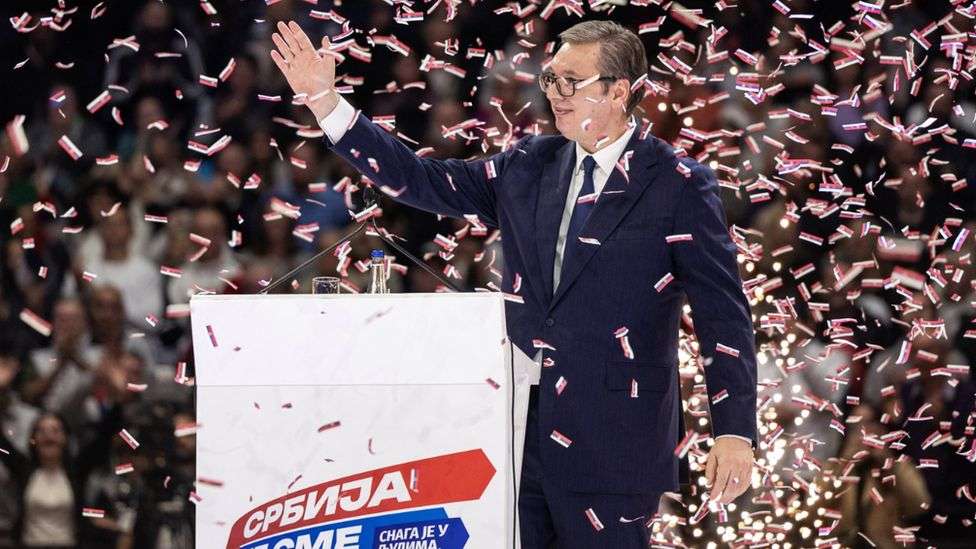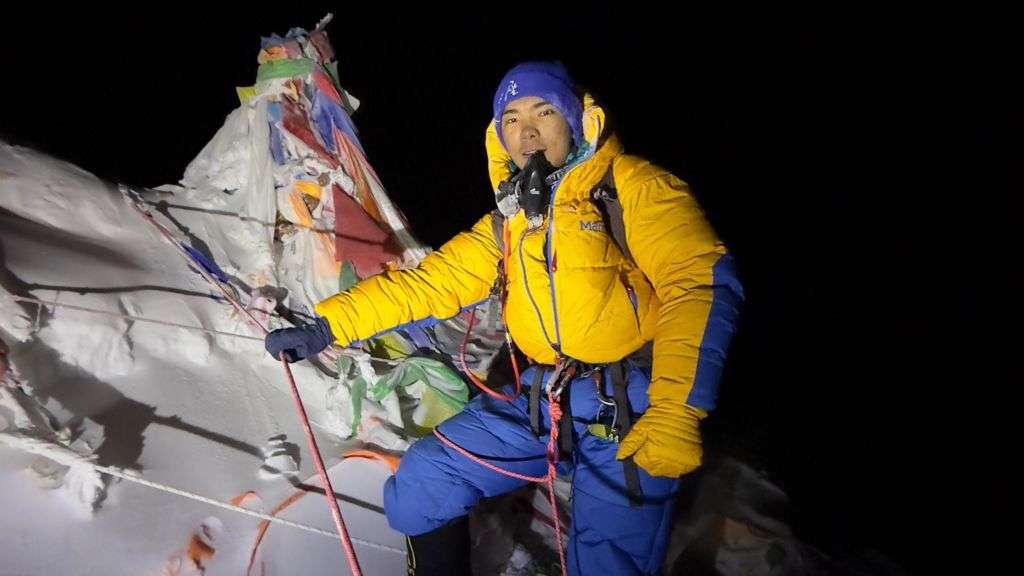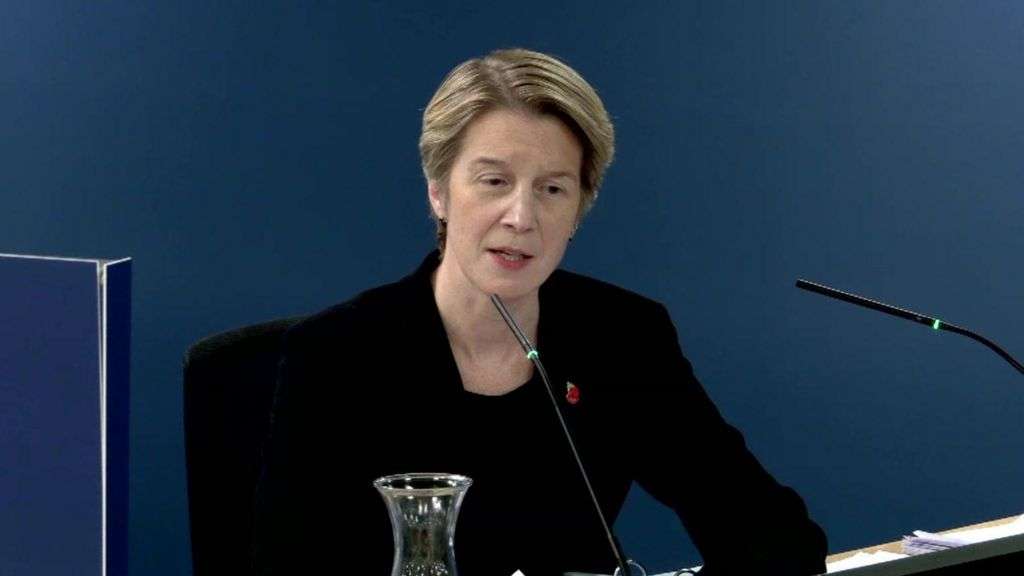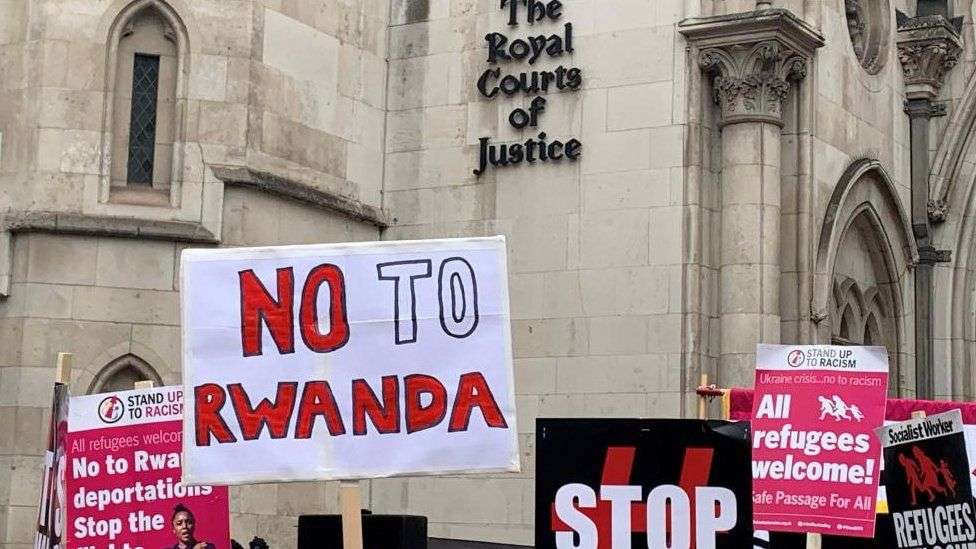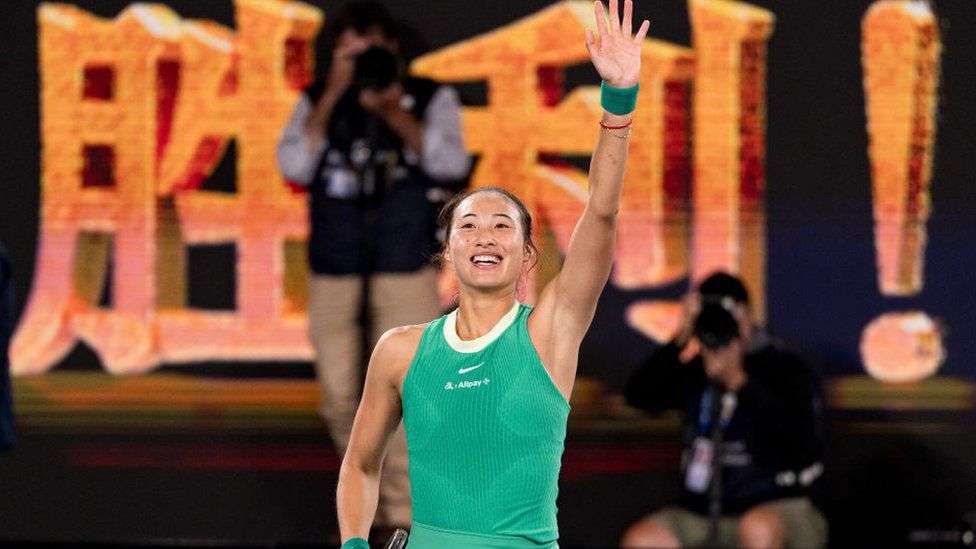Serbia's president, Aleksandar Vucic, may not be standing in Sunday's parliamentary elections himself. But his image and name are front and centre of his party's campaign.
His ostensibly pro-EU but ideologically elusive Serbian Progressive Party (SNS) have enjoyed a series of victories since they first took office in 2012.
While he is no longer officially the party's leader, President Vucic has been the dominant figure in Serbian politics for the past decade. And the election campaign reflects that.
"All of the [opposition parties], the only programme that they have to offer is: 'Aleksandar Vucic is bad, he's a tyrant, he's an autocrat'," says Prime Minister Ana Brnabic.
She is also an SNS member, and not at all shy about making the connection with the president - repeatedly referring to Mr Vucic during an interview with the OceanNewsUK.
The message seems clear: a vote for the Progressives is a vote for Mr Vucic.
Rasa Nedeljkov, who is programme director of the election monitor CRTA (the Centre for Research, Transparency and Accountability), says the focus on the president is problematic.
"60% of people think Vucic is the candidate - whether in the national or the local elections. It's a huge deception."
But if it is a deception, it has considerable power. Mr Vucic and his party have enjoyed an unbroken winning streak in elections stretching back more than a decade.
Those polls have come thick and fast during that period. The last parliamentary election took place just 20 months ago. And the one prior to that was held in 2020.
But this time around, the SNS may face sterner competition. Most of the opposition parties which are in favour of Serbia's membership of the European Union have agreed to fight the elections as a coalition.
It is the proverbial "big tent" - with member parties ranging from green activists to conservatives. But polling indicates that the pro-EU opposition are a lot more attractive to voters as a united proposition than as individual parties.
Their electoral list is called "Serbia Against Violence", reflecting its origins in the protests that followed two mass shootings which horrified the country in May. The opposition claim the killings reflected a culture of rhetorical and physical violence promoted by Mr Vucic, the SNS and their allies in the media.
"This is what Serbia needs right now," says Borko Stefanovic, the deputy president of the centre-left Party of Freedom and Justice.
"It came out of the huge protests. When it became obvious that the government would not fulfil any of the demands of the people in the streets, we all - as pro-European parties - decided to come together and do what people have been demanding of us for years."
Serbia Against Violence may have demanded the election. But they will be facing an uphill battle to challenge the Progressives' dominance.
The SNS has a well-oiled party machine. And election monitor CRTA points out that they also benefit from a broadly friendly media. Rasa Nedeljkov bemoans a "chronic lack of pluralism" and notes that President Vucic has made more than 250 televised addresses this year alone.
The opposition also accuses the SNS of "state capture" - using public resources for party purposes.
Both these allegations get short shrift from Ana Brnabic, who insists that "the elections are fair, and the media is, in fact, quite open to the opposition"
In reality, she says, agreeing to early elections shows that the government is nothing like the autocracy its sternest critics claim it to be.
"In the spirit of democracy, we wanted to say yes."
"The opposition claimed that we had lost credibility and legitimacy and that elections should be held. As a party, we never run away from elections - if someone thinks that we have lost legitimacy and wants to double-check it, we can always do that. How ever people vote, we will respect that."
Just as the president's beloved Red Star Belgrade tend to dominate the smaller football clubs in the Serbian SuperLiga, the Progressives are looking for a routine win in the parliamentary contest. The same goes for local elections which are being held in much of the country, including the capital, Belgrade.
Part of the reason for the Progressives' long run in power has been the lack of a credible alternative. The Democratic Party splintered after it lost power in 2012 - and none of the resulting constellation of smaller parties grew large enough to have a realistic shot at forming a government.
A divided opposition suited the Progressives perfectly. And Mr Vucic successfully presented himself as the strong figure needed to bring prosperity to Serbia.
The Serbia Against Violence coalition at least offers voters a coherent alternative.
But the operations of the Green-Left Front - one of the coalition's members - are rather more homespun than the Progressives' slick campaign. Their Belgrade headquarters sits in a converted shopfront, staffed by young volunteers, with gas-powered heaters staving off the winter chill.
Their joint leader, Biljana Djordjevic, concedes that a national victory would be a stretch. But she believes that other targets are achievable.
"You can never be as fully prepared as they are," she says, "but we are not afraid of elections, because we know there will be more of us. And especially in Belgrade, we know we can win."
"We believe in changes from the bottom up - from cities. Not everything is resolved in these elections, but in two or three steps."
That process may take some time, if the government sticks to its line that this parliamentary election may be the last until 2027.
Ana Brnabic says "Serbia needs that kind of stability" for the SNS to carry out its programme of infrastructure improvements and boosts to salaries and pensions.
The opposition have the incentive to drum up the excitement levels, so Sunday's vote will show whether their united front convinces the electorate.


